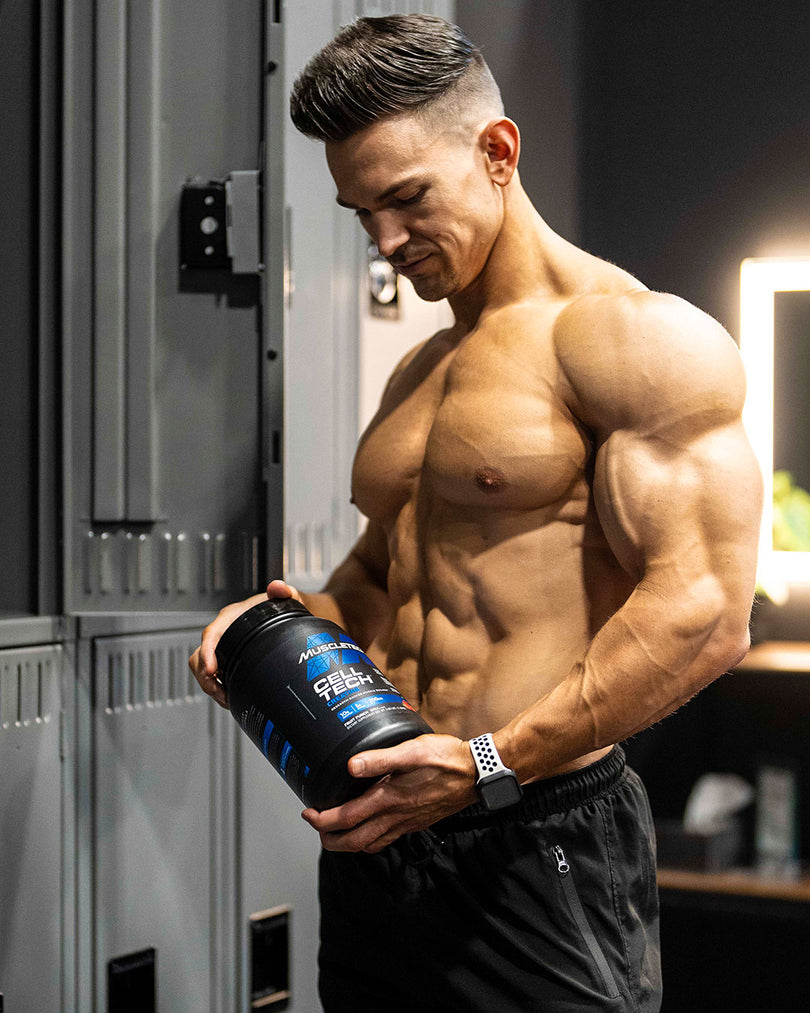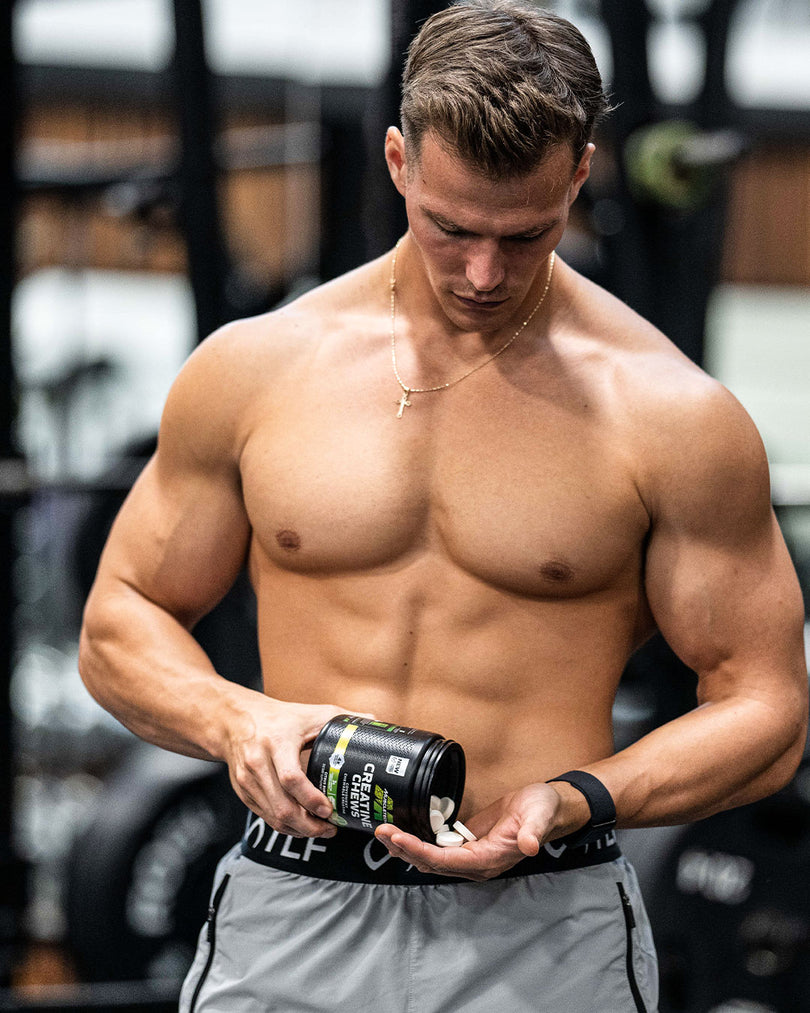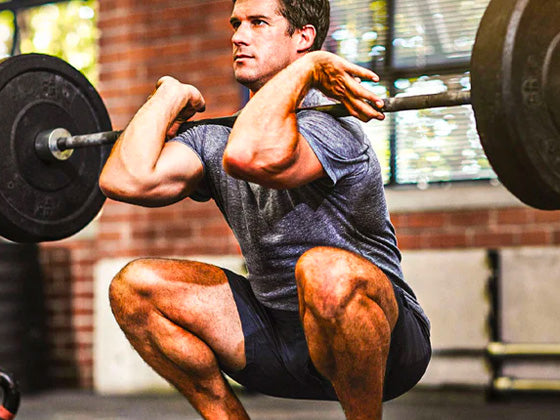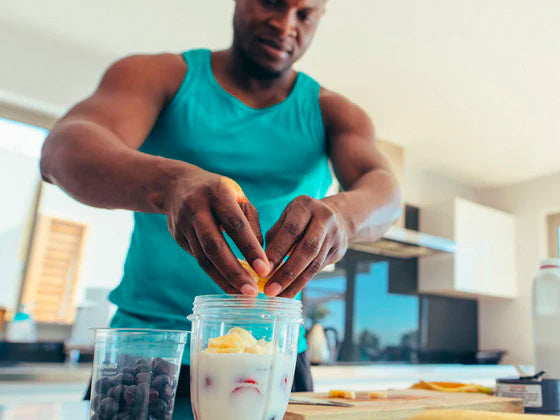RESEARCH
A portion of every dollar spent on MuscleTech® supplements is allocated towards funding scientific research to discover new and more effective ways to help increase lean muscle mass and strength, reduce bodyfat and improve athletic performance.
BACKED BY SCIENCE
As a leading brand in the science nutrition space, MuscleTech® has a rich history of partnering with top-ranked researchers to sponsor scientific research and novel discovery. We have always been interested in developing scientifically-backed products and working with top scientists to further our understanding of key ingredients that benefit countless athletes, fitness enthusiasts, and bodybuilders.
Funded numerous peer reviewed research studies
Over 100 patents with multiple patent applications pending worldwide
Over 25 years as an industry leader
Partnered with leading researchers
Manufactured According to cGMP standards, as is required for all dietary supplements
OUR RESEARCH JOURNEY
Below, we’ve included a selection of key research studies that we have sponsored in partnership with experts in exercise physiology and sports nutrition from around the world.
- CREATINE STUDIES
- MELATONIN STUDIES
- CURCUMIN STUDIES
- WHEY PROTEIN STUDIES
Study:
Burke DG, MacLean PG, Walker RA, Dewar PJ, Smith-Palmer T. Analysis of creatine and creatinine in urine by capillary electrophoresis. J Chromatogr B Biomed Sci Appl. 1999;732(2):479-85.
Key Finding:
Creatine is found in the urine of subjects ingesting creatine monohydrate as an ergogenic aid. Significant amount of creatine is excreted after ingestion. It can also be seen that with a higher dose, a larger absolute amount of creatine is retained, even though the fraction of the dose excreted is larger.
Study:
Burke DG, Silver S, Holt LE, Smith Palmer T, Culligan CJ, Chilibeck PD. The effect of continuous low dose creatine supplementation on force, power, and total work. Int J Sport Nutr Exerc Metab. 2000;10(3):235-44.
Key Finding:
21 days of creatine supplement at a relatively low dose of 7.7 g/day or 0.1g/kg LBM, can positively affect peak force output, peak power output, total work performed until fatigue, and delays onset of fatigue. Beneficial for the people who are involved in sports requiring short bursts of high-intensity activity.
Study:
Burke DG, Chilibeck PD, Parise G, Tarnopolsky MA, Candow DG. Effect of alpha-lipoic acid combined with creatine monohydrate on human skeletal muscle creatine and phosphagen concentration. Int J Sport Nutr Exerc Metab. 2003;13(3):294-302.
Key Finding:
Co-ingestion of 1000 mg/day of α-lipoic acid with 20g/day of creatine and 100 g/day of sucrose can enhance muscle total creatine content as compared to the ingestion of creatine and sucrose or creatine alone.
Study:
Chrusch MJ, Chilibeck PD, Chad KE, Davison KS, Burke DG. Creatine supplementation combined with resistance training in older men. Med Sci Sports Exerc. 2001;33(12):2111-7.
Key Finding:
When combined with resistance training, creatine supplementation has been shown to increase lean tissue mass and improve leg strength, endurance, and average power in men.
Study:
Key Finding:
Males who supplemented with a combination of whey protein and creatine supplementation demonstrated greater increases in lean tissue mass and bench press compared to males who supplemented with only whey protein alone or placebo.
Study:
Key Finding:
Arm muscle thickness was demonstrated to greatly increase after training when participants supplemented with creatine. There is a greater increase in lean tissue mass in males compared to females with creatine supplementation.
Study:
Cornish SM, Candow DG, Jantz NT, Chilibeck PD, Little JP, Forbes S, Abeysekara S, Zello GA. Conjugated linoleic acid combined with creatine monohydrate and whey protein supplementation during strength training. Int J Sport Nutr Exerc Metab. 2009;19:79-96.
Key Finding:
During heavy resistance training, the combination of creatine, conjugated linoleic acid, and whey protein was beneficial for increasing strength and lean tissue mass in young men and women. Creatine combined with protein was more effective than protein alone for increasing lean-tissue mass.
Study:
Key Finding:
Creatine (0.25g/kg/day for 7d and 0.06g/kg/day thereafter) supplementation for 8 weeks increased exercise performance, such as bench press strength, and led to a greater increase in lean tissue. Total creatine levels have been shown to be significantly lower in both male and female vegetarians compared to non-vegetarians, and vegetarians with initially low creatine levels may overall experience a greater benefit from creatine supplementation.
Study:
Lukaszuk JM, Robertson RJ, Arch JE, Moyna NM. Effect of a defined lacto-ovo-vegetarian diet and oral creatine monohydrate supplementation on plasma creatine concentration. J Strength Cond Res. 2005;19(4):735-40.
Key Finding:
Creatine monohydrate (0.3g/kg/day) supplementation for 7 weeks by lacto-ovo-vegetarian individuals may help to increase creatine storage in the muscles, and therefore maintain a continuous supply of energy, similar to levels seen in individuals who consume an omnivore diet.
Study:
Key Finding:
Creatine monohydrate (0.3 g/kg/day for 5 d and 0.07 g/kg thereafter) supplementation for 12 weeks may help to increase bone mineral content in older men. Maintaining healthy bone mineral density and mass helps to prevent fractures, reduce pain, and minimize risk of osteoporosis.
Study:
Key Finding:
Creatine (0.25 g/kg/day for 7 d and 0.06 g/kg thereafter) supplementation for 8 weeks during resistance-exercise increases a marker of physical performance to help enhance muscle growth and reduce body fat in healthy men and women.
Study:
Safdar A, Yardley NJ, Snow R, Melov S, Tarnopolsky MA. Global and targeted gene expression and protein content in skeletal muscle of young men following short-term creatine monohydrate supplementation. Physiol Genomics. 2008; 32: 219-228.
Key Finding:
Short-term creatine monohydrate (Loading phase: 20 g/day for 3d; and maintenance phase: 5 g/day for 7d) supplementation significantly increases fat-free mass, total body water, and overall body weight of men. It has also been shown to play a role on our cells, helping with regulation of protein production and other important functions, such as overall cell survival.
Study:
Key Finding:
Combined creatine and Glycerol Hyperhydration is an effective method of hyperhydration capable of reducing thermal and cardiovascular responses.
Study:
Tarnopolsky MA, Parise G, Yardley NJ, Ballantyne CS, Olatinji S, Phillips SM. Creatine-dextrose and protein-dextrose induce similar strength gains during training. Med Sci Sports Exerc. 2001;33(12):2044-52.
Key Finding:
In a randomized, double-blind parallel group study, postexercise supplementation with 10g of casein + glucose 75g and 10g of creatine monohydrate + glucose 75g (CELL-Tech®) resulted in similar increases in fat-free mass and strength after an 8-week resistance exercise training program. However, the greater gains in total mass for the CELL-Tech® group may have implications for sport-specific performance.
Study:
Nassar E, Mulligan C, Taylor L, Kerksick C, Galbreath M, Greenwood M, Kreider R, Willoughby DS. Effects of a single dose of N-Acetyl-5-methoxytryptamine (Melatonin) and resistance exercise on the growth hormone/IGF-1 axis in young males and females. J Int Soc Sport Nutr. 2007. 4:14
Key Finding:
Acute Melatonin supplementation as low as 0.5mg/day and as high as 5.0mg/day has been shown to positively impact growth hormone levels in males when combined with resistance exercise.
Study:
Key Finding:
Animal studies have demonstrated the combined benefits of curcumin and a-lipoic acid on reducing weight gain and body fat in mice fed high-fat diets. These are promising findings that with additional research, may have similar effects in humans.
Study:
Key Finding:
25g of Whey protein (a blend of whey peptides, isolates, and concentrates) supplementation enhances the body’s production of protein and helps to improve recovery after strenuous exercise in trained males.
GET IN THE BEST SHAPE OF YOUR LIFE!
For more than two decades, MuscleTech has pushed science and human potential to its limits. Our experts have pioneered ground-breaking supplement research and some of the most legendary training programs around. Our all-new 10-week periodized training program is the culmination of all our knowledge—packed into a plan that will take your body to the next level.
FEATURING BONUS WORKOUTS FROM MICHAEL DEAN JOHNSON
Michael Dean Johnson is an American fitness model, pro bodybuilder, and online coach. His goal is to help others realize their potential, equipping them with the knowledge to achieve their goals, and gain confidence (and discipline) through strength. He believes that training is an enjoyable source of stress relief and has earned the reputation as someone who will go above and beyond to bring his clients to new fitness levels.





